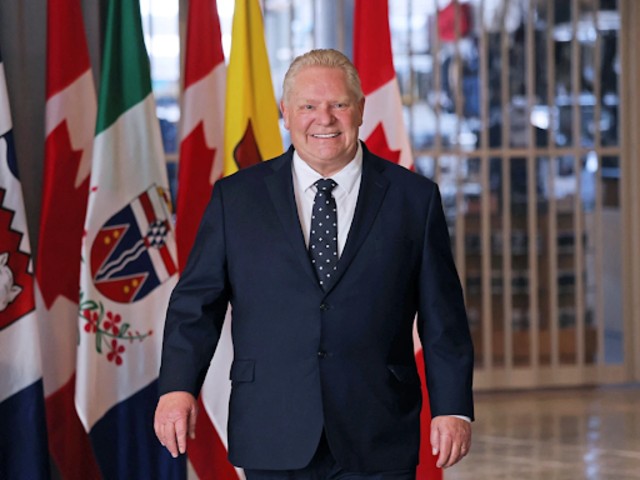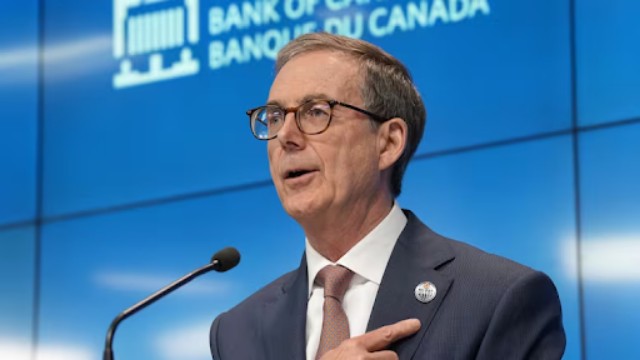
Ontario Premier Doug Ford attends the First Ministers’ Meeting in Ottawa. (Photo: Dave Chan/AFP via Getty Images)
Several Canadian premiers are calling for an end to interprovincial trade barriers ahead of a critical meeting with Prime Minister Mark Carney. The discussion, set for Friday at the Canadian War Museum, will focus on Canada’s response to escalating tariffs from China and the United States.
Ontario Premier Doug Ford stressed the need for national unity, arguing that Canada must present a strong front against U.S. President Donald Trump’s aggressive trade policies. According to Ford, dismantling trade restrictions between provinces should be the first step in strengthening the country’s economic position.
Manitoba Premier Wab Kinew echoed these concerns, stating that Canada is now caught in a two-front trade battle. He emphasized the importance of crafting a strategic economic plan that considers both China’s actions and the U.S.-Canada trade relationship.
Saskatchewan Premier Scott Moe, participating virtually, highlighted the immediate need to address China’s tariffs on Canadian canola oil and meal. These tariffs were imposed in response to Canada’s levies on Chinese electric vehicles, steel, and aluminum. Moe urged Carney to take swift action, suggesting that direct negotiations with Beijing should be a top priority.
New Brunswick Premier Susan Holt voiced strong support for eliminating interprovincial trade barriers, calling for bold moves to streamline commerce between provinces. She warned that Trump’s retaliatory tariffs, set to take effect on April 2, pose a serious economic threat and must be countered with coordinated action.
The meeting comes at a pivotal time, as Carney is expected to announce a federal election campaign soon, possibly sending Canadians to the polls by April 28. While Carney declined to speak with reporters before the meeting, he arrived alongside Minister of International Trade Dominic LeBlanc and Minister of Transport Chrystia Freeland.
None of the premiers explicitly endorsed any federal leader. However, Holt noted that while she has yet to meet Conservative Leader Pierre Poilievre, she believes Carney’s intelligence and dedication make him a strong negotiator, particularly in dealing with Trump.
Ahead of Friday’s meeting, Carney also held virtual discussions with Indigenous leaders, including Assembly of First Nations National Chief Cindy Woodhouse Nepinak, Metis National Council President Victoria Pruden, and Inuit Tapiriit Kanatami President Natan Obed. Woodhouse Nepinak later emphasized that First Nations must be included in major economic decisions.
Yukon Premier Ranj Pillai highlighted the increasing geopolitical importance of the Arctic and called on all federal parties to prioritize Canada’s North in their policies.
Quebec Premier François Legault expressed concern over the economic impact of U.S. tariffs on Quebec businesses. He argued that Canada’s countermeasures should be designed to hurt American businesses while minimizing damage to Canadian industries. He also suggested that public opinion in Quebec is shifting in favour of pipeline projects due to the economic strain caused by the trade war.
The situation's urgency has been underscored by Trump’s recent escalation of tariffs, including a 25% tax on steel and aluminum imports. In response, Canada has expanded its own retaliatory tariffs on U.S. goods. Meanwhile, Trump has continued to make provocative statements, even suggesting that Canada should become a U.S. state.















